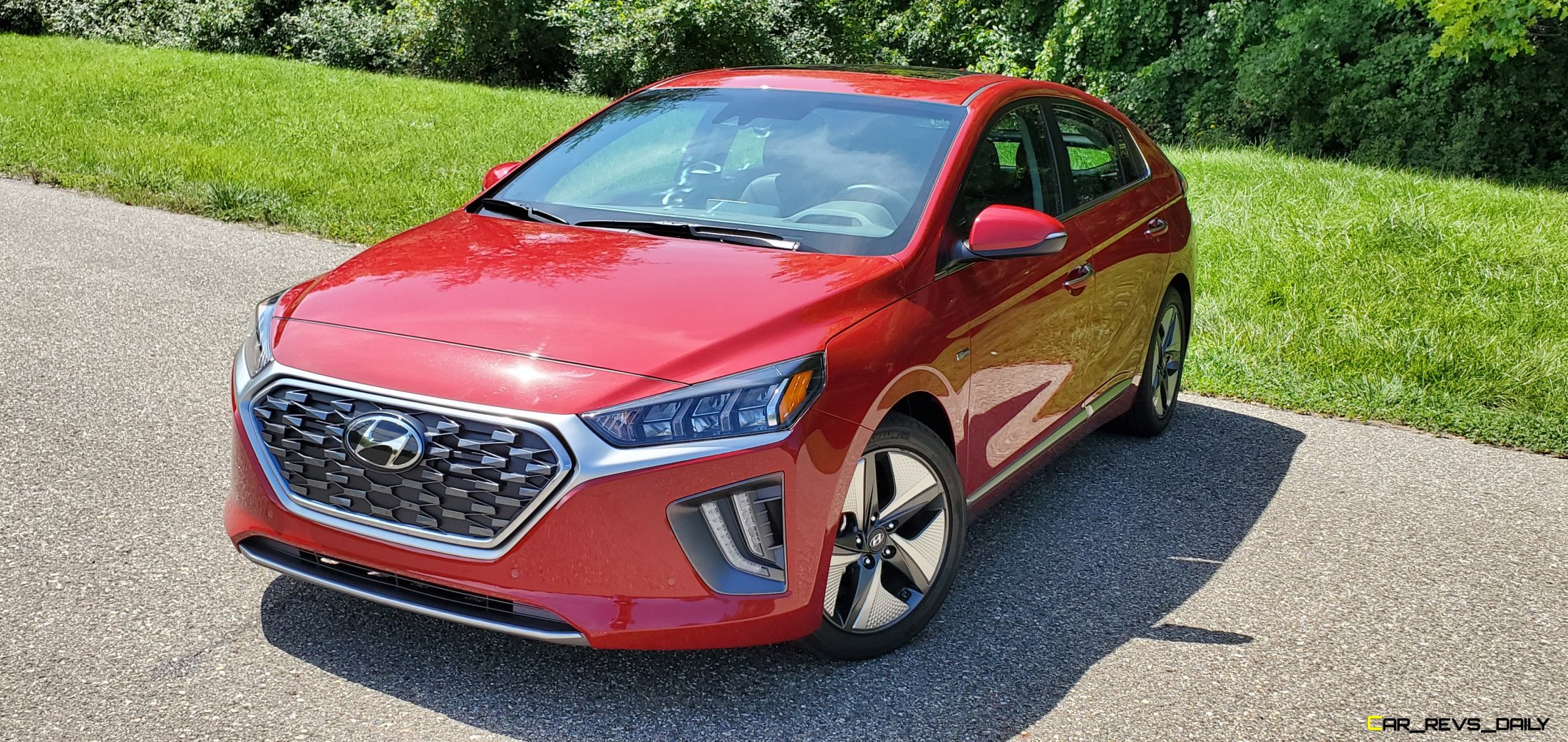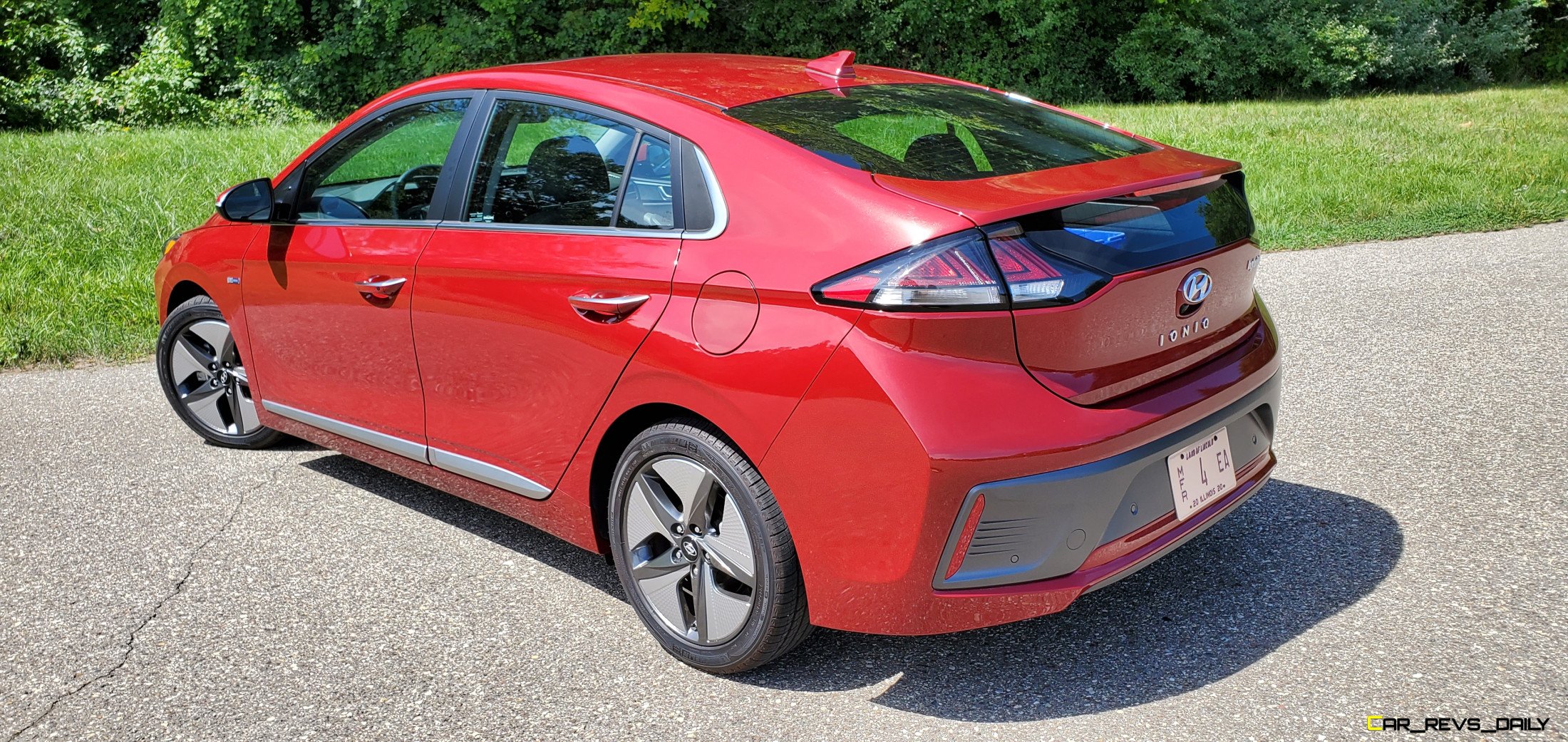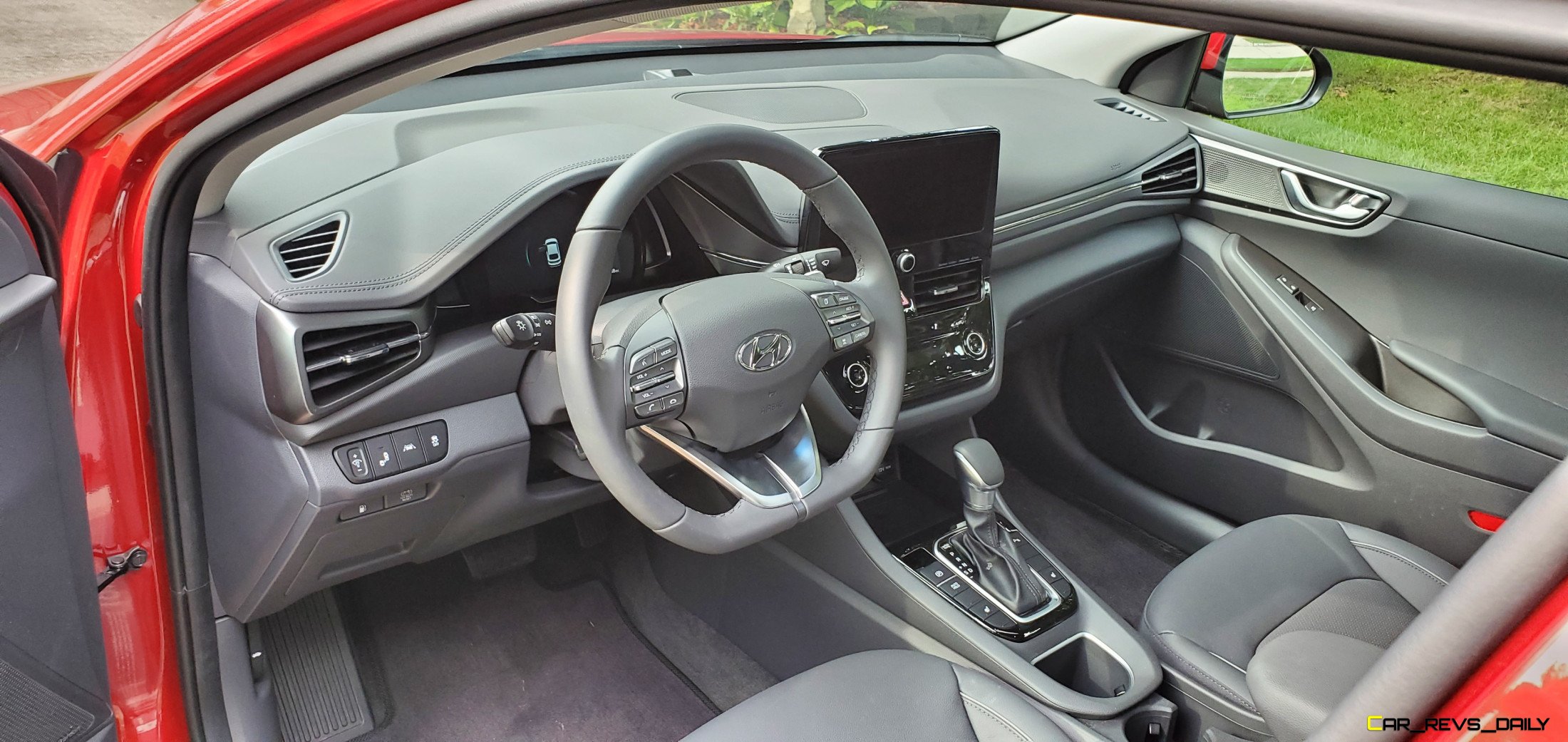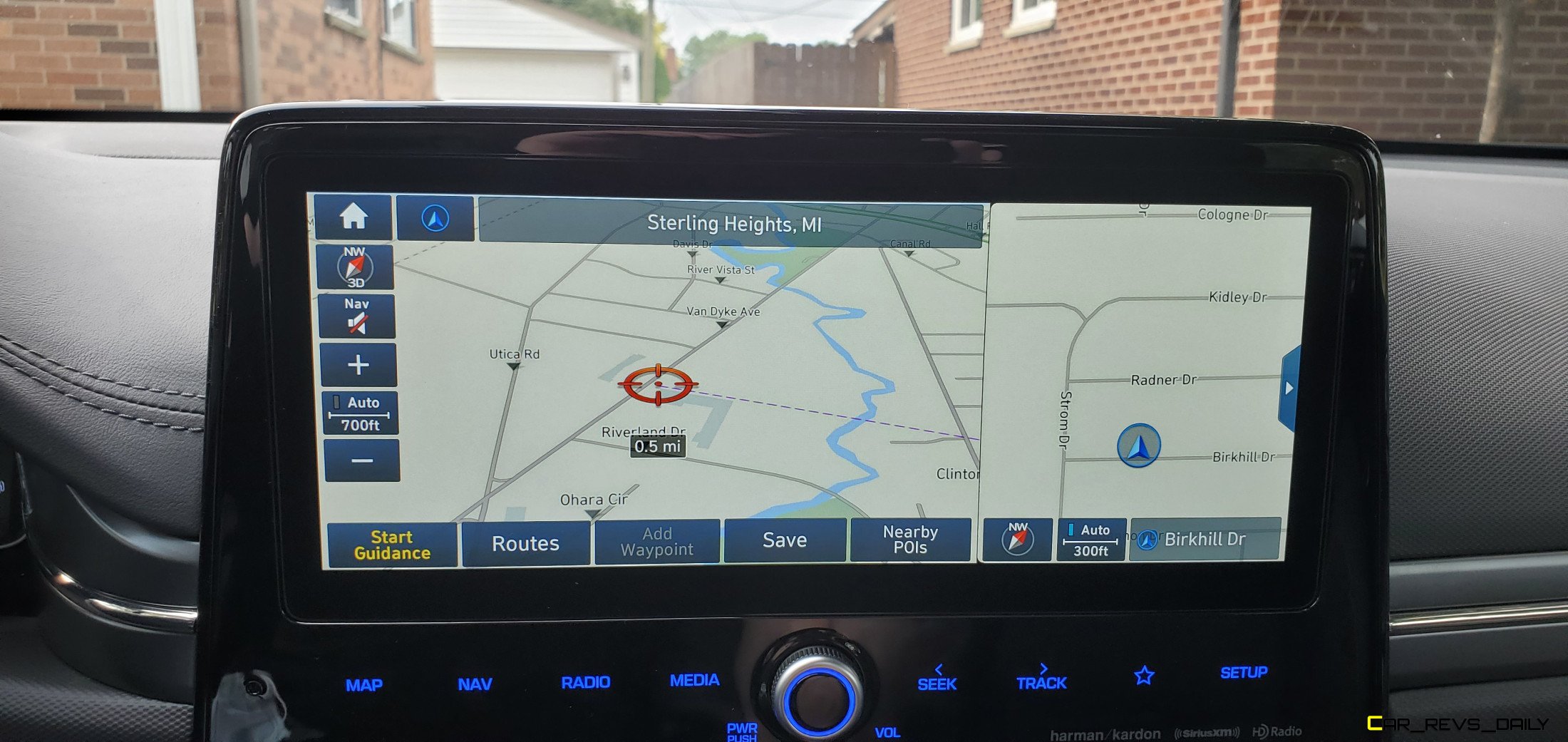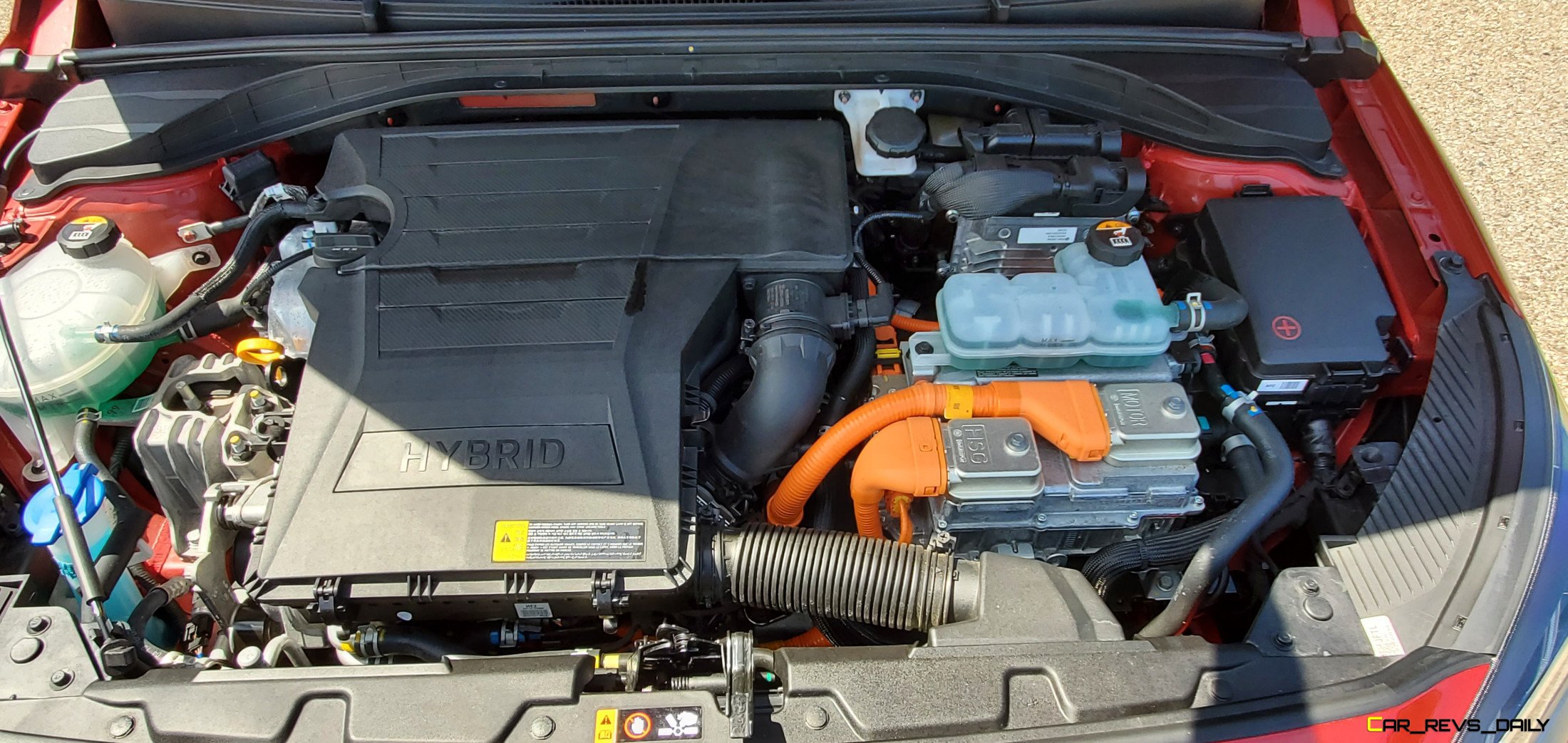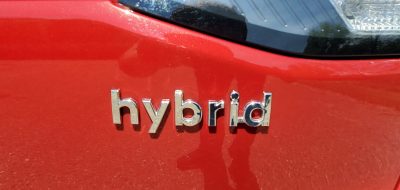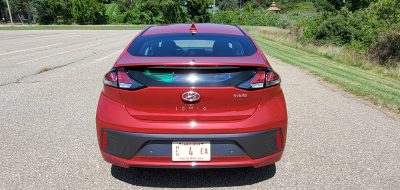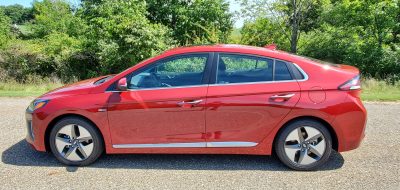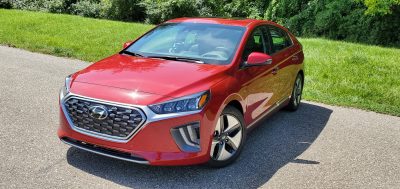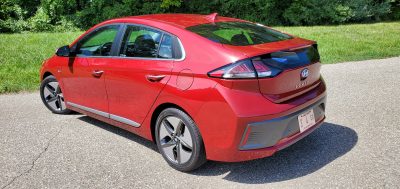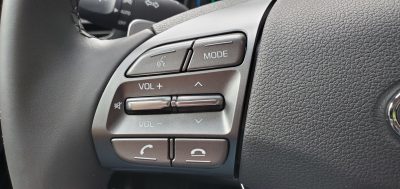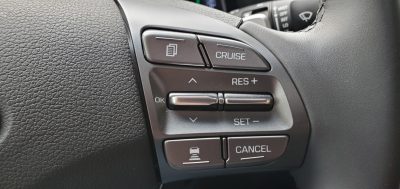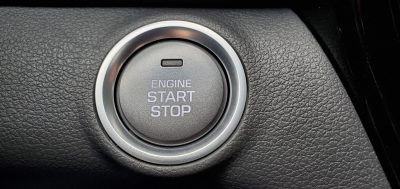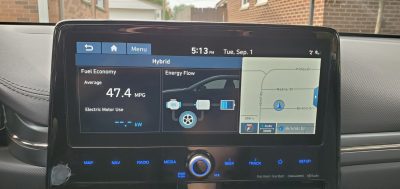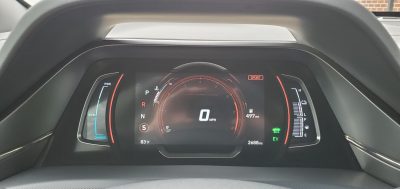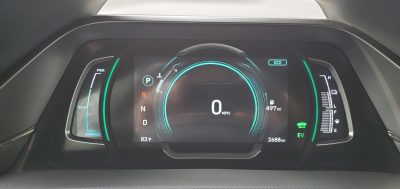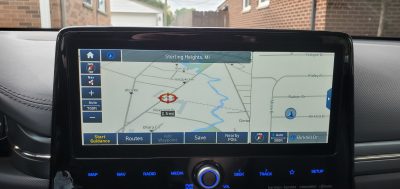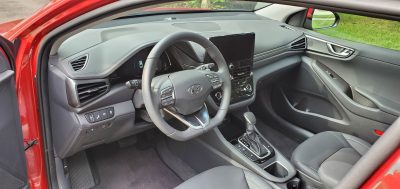Remember back when the Toyota Prius was once considered to be the de-facto benchmark of the green vehicle segment? We do and apparently so do some of its rivals who are out to show the world that there are indeed other options besides the mighty green icon. One of these firms is Hyundai who has perhaps pulled the boldest coup of them all with the 2020 Ioniq. On the surface the Ioniq appeared to check off alot of the boxes that green car buyers want. That included exceptional fuel economy and futuristic technology but can the 2020 Hyundai Ioniq continue to maintain its momentum?
Light freshening helps keep Ioniq focused 
With the 2021 Ioniq entering the marketplace with virtually no major changes to speak of buyers will have to actually bounce down to the 2020 model year to fully digest the suite of changes that Hyundai made to the Ioniq. The front fascia features a tweaked front grille and its clear that aerodynamics are playing a much bigger role in the looks department this time around. The front bumper has also been reworked and this subtle freshening continues towards the rear where revised headlights and a tweaked rear bumper make their mark.
Our Limited grade tester arrived at the office with the $1,750 Premium package which adds LED head and taillights as well as a slick set of 17-inch alloy wheels to the package. The end result is a look that is still tastefully understated but now has the focus and the cohesion needed to truly make the Ioniq a more complete presentation. With the Prius doubling down on its futuristic sci-fi styling (for better or for worse) the Ioniq’s low key approach could please customers that want to save on fuel, but without making too much of a scene.
An attractive interior regardless of trim level
A potent selling point for the 2020 Hyundai Ioniq is the interior with Hyundai doing a god job of maintaining the high levels of comfort and serenity that the outgoing Ioniq was known for. Even base levels are reasonably equipped, but our SEL grade tester did arrive with a few more frills to go along with its more luxurious focused theme. They included heated front leather seats, a leather wrapped steering wheel, as well as a sliding armrest with storage box.
Beyond those features the Ioniq is still a vehicle that is mindful of the planet with Hyundai engineers actually using sustainable materials like sugar cane and volcanic rock for select elements of the interior. The front seats themselves are very comfortable places to spend time in but they will not be the text book example of proper bolstering with our tester lacking good lower back support. The rear seats are best left for children but unlike others in its segment the rear can accommodate adult sized passengers in a pinch with comfort to spare. Cargo space is a bit tight on the Ioniq but the car can still serve the role of grocery hauler very well especially with the rear seats folded down.
Ioniq doubles down on technology
A bigger change here can be found in the infotainment technology that Hyundai is bringing to the Ioniq this time around. Our tester came equipped with the optional 10.25 inch system but buyers will be pleased to hear that a smaller 8.0 inch infotainment system is now standard which means the Ioniq now has screens across the board. The bigger 10.25 inch display is supposed to have improved software and Hyundai added more capacitive controls to help reduce clutter.
As for our car, the smaller 8.0 inch system performed very well with Hyundai claiming that it has improved input speed and feedback this time around. The screen comes with the latest iteration of UVO and is compatible with both Apple CarPlay and Android Auto.
The system performed very well during our time with it, and we even appreciated the background noises that are part of the new Sounds of Nature feature. This particular option comes with a built-in suite of sounds that are supposed to help customers be more relaxed while the sounds are active. From a snow covered forest to even the background noise of a open air cafe (a nice reminder of dine-in dining before recent restrictions took affect here in Michigan) Sounds of Nature has a little bit of everything which should please customers.
Fuel economy at the cost of performance
Performance for the 2020 Hyundai Ioniq is a true split personality affair and is a tapestry that needs to be explored. Hybrid models like our car come equipped with a 1.6 liter four cylinder engine which is mated to a small electric motor and is good for a rather paltry 139 horsepower and 195 lb-ft of torque. Those figures allow this aerodynamically shaped potato to make the jog to 60 mph in a rather leisurely 8.9 seconds. A six speed dual clutch automatic is the sole transmission on board and when placed in Eco Mode it places fuel economy over all else. That includes good acceleration from stoplights with our tester always waiting too long to downshift before getting into the right gear we needed. Handling is pretty commendable for a green vehicle but the Ioniq will never be mistaken for a track day darling.
But as they say this is only one part of the story, and while the Ioniq doesn’t quite hold the mustard when it comes to traditional performance it does make up for it by offering impressive fuel economy numbers. Hyundai claims that an Ioniq Blue model can achieve 58 mpg in the city and 55 mpg on the highway with the combined figure checking in at 55 too. Our Limited grade tester is slightly heavier due to some of its additional options and that causes the city figure to fall slightly to 54 mpg. However freeway economy is slightly higher at 59 mpg which is a nice plus. These figures are on target with the Toyota Prius and the Ioniq still retains its place as a very potent competitor to the iconic hybrid.
Value Quotient
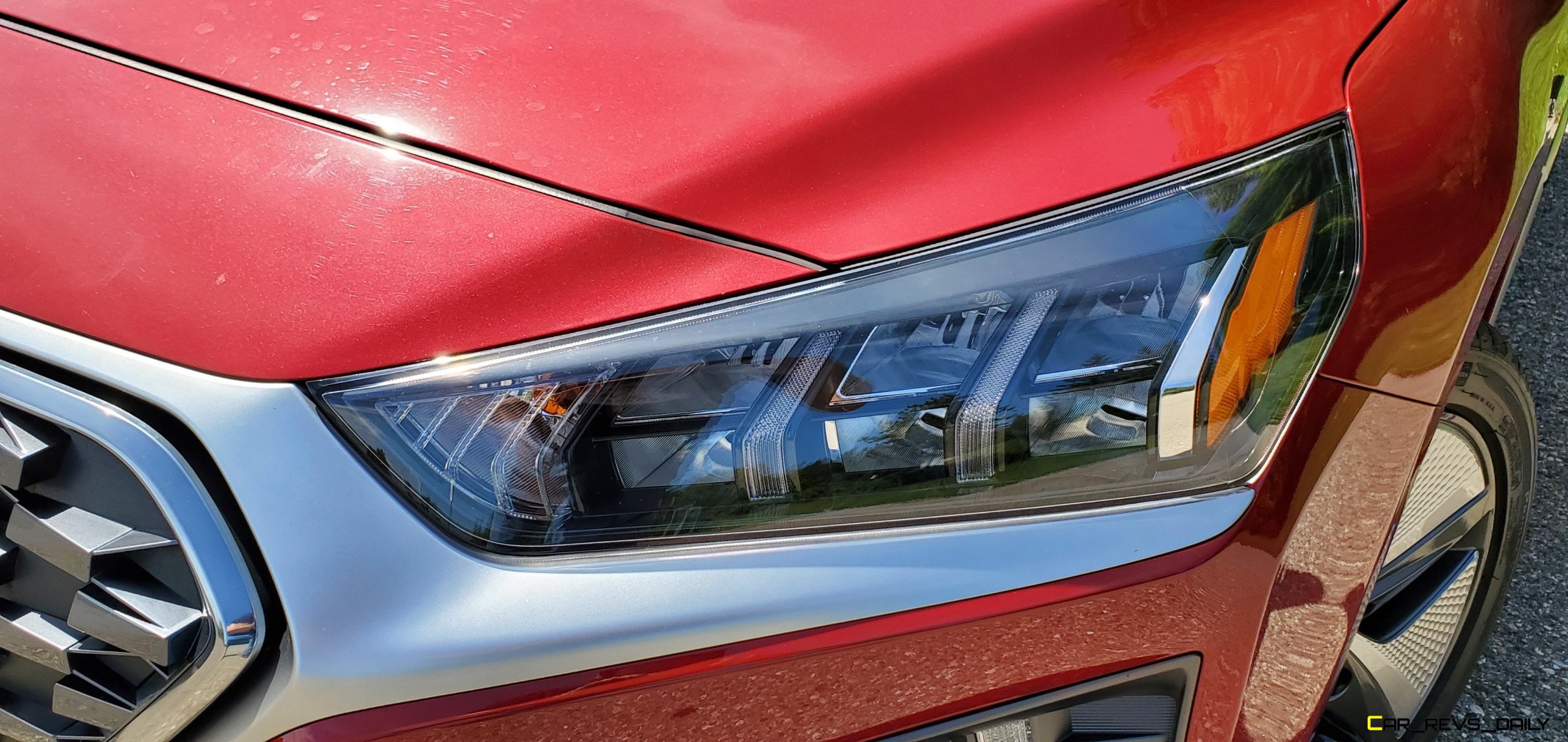
Pricing for the 2020 Hyundai Ioniq (2021 models have not arrived in the configurator as of yet) starts at $23,200 for a base Blue model with the more volume focused SE and SEL variants starting at $25,150 and $28,400 respectively. Buyers that choose a range topping Limited model like our tester are greeted by a $31,200 base sticker. Our lightly optioned example did not stray too far from that sticker, and rang in slightly above that due to the addition of some minor pieces of optional equipment.
This pricing helps the Limited stay slightly below a $32,650 Prius Limited model but it also manages to be a bit pricier than the Honda Insight Touring. The middle ground that the Ioniq Limited occupies gives the model the ability to lure in a wider range of consumers versus its lower priced siblings and that in turn can help Hyundai have a higher degree of conquest sales especially from buyers that are looking for something different from a Prius or a Insight.
With a tasteful suite of updates and just the right amount of tweaking done the 2020 Hyundai Ioniq aims to continue its long march to sales dominance. It will be interesting to see how the model will perform once the Ioniq sub-brand gets off the ground and more models enter the family.

Carl Malek has been an automotive journalist for over 10 years. First starting out as a freelance photographer before making the transition to writing during college, his work has appeared on numerous automotive forums as well as websites such as Autoshopper.com.
Carl is also a big fan of British vehicles with the bulk of his devotion going to the Morgan Motor Company as well as offerings from Lotus, MG, and Caterham. When he is not writing about automobiles, Carl enjoys spending time with his family and friends in the Metro Detroit area, as well as spending time with his adorable pets.

